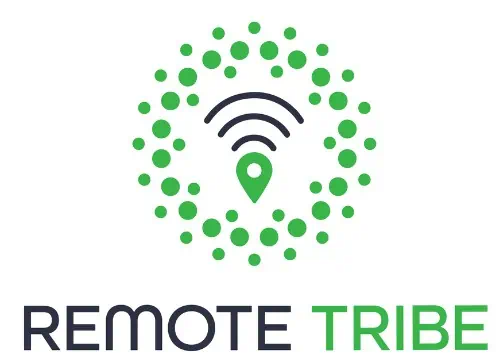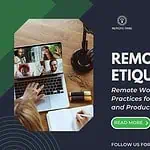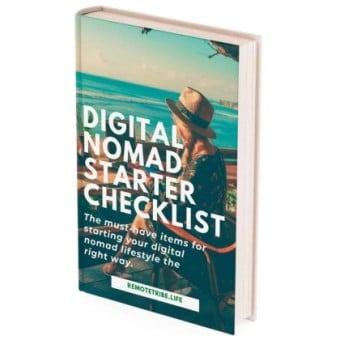Hello fellow wanderluster and Wi-Fi seeker! As you gallivant around the globe, hopping from one caffeinated co-working space to the next, there’s an unspoken digital nomad code that many of us learn—often the hard way! But fret not, for I’m here to share some “what NOT to do” wisdom. I myself made a lot of mistakes when I started and unfortunately, they cost me a lot of time, frustration, and some money (on lost and stolen things, argh)
I dug deep into my memories and thought really well about the things that went wrong and how I could have avoided them. Here’s a cheeky list of digital nomad no-nos build in my opinion that you should know
1. Flying by the Seat of Your Pants (All the Time)
A little spontaneity adds spice to life, doesn’t it? But constantly winging it can land you in hot water. Imagine being on a Zoom call and realising your beach hut‘s Wi-Fi has conked off. Plan a bit, mate. It saves tears later!
2. Neglecting Time Zones
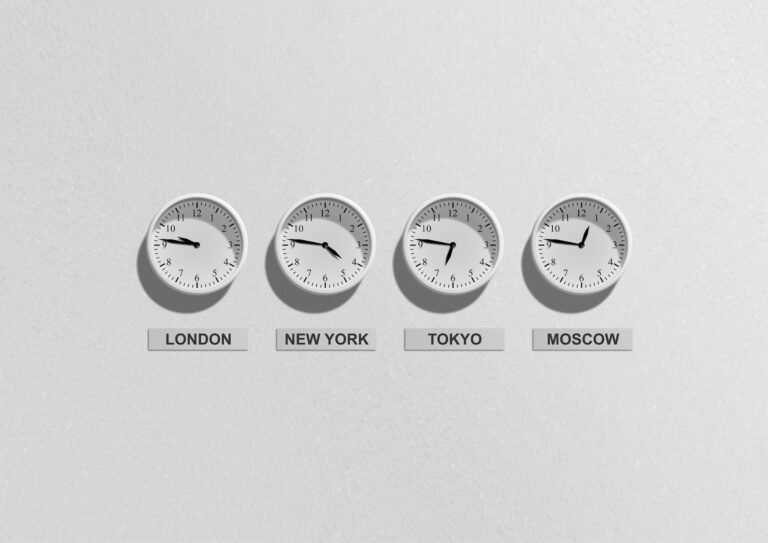
So you’ve promised a client an update by 5 pm. Brilliant! But did you clarify whose 5 pm? Theirs, yours, or the place where your virtual office cat resides? This tiny oversight can cause a righteous kerfuffle.
Make sure that your Google calendar is set to the local time zone whenever you change locations. Here is a good timezone converter you should look at every time you schedule an appointment globally or do business with another continent. Also, you might want to setup some clocks on your iPhone and Macbook Screen 🙂
3. Thinking 'It Won't Happen to Me'
Lost luggage, misplaced passports, stolen laptops… While we’d love to think we’re the exceptions, it’s better to be prepared. A dash of caution and a sprinkle of preparation go a long way! I’d say get some airtags on it. You can buy them from Amazon or Apple Store. I also try to stick with just two items. A big backpack or cabbin trolley and a nice city bag. That’s it. Keep it simple, it’s more than enough for a few months of travelling.
4. Being That Loud Cafe Guy or Gal
Yes, you’re sealing the deal of a lifetime. No, the entire cafe doesn’t need to hear it. Keep it down, will you? Headphones are a gem, and “indoor voices” aren’t just for kids.
5. Forgetting to Back Up Your Work
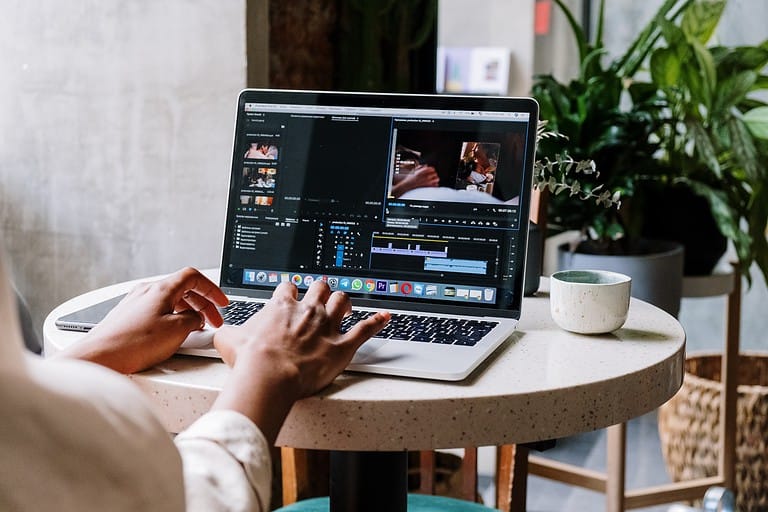
One coffee spill, one dropped hard drive, one unpredictable power cut, and boom! All your hard work can vanish. Regularly back up your files, both on the cloud and an external drive. Have Google Drive or icloud running on the background on your computer can be a life saver so why not?!
6. Assuming Every Place is a Workspace
That ancient temple might offer the perfect Instagram backdrop, but it’s not the place to whip out your laptop and start tapping away. Respect the culture and the sanctity of places, and if you don’t know the local rules, make an effort to find them out. It’s better to be safe and respectful than sorry. Not all coffee shop owners are open to letting you work for hours on your laptop, and you might get some weird looks. Also, not all digital nomad cities are safe (still remember when a thief tried to steal my backpack in Bogota), so you want to work in a quiet and safe space too. Why not try coworking?
7. Doing It All
You’re not on a travel show, and you don’t need to be everywhere and do everything. Yes, the world’s your oyster, but sometimes it’s alright to leave a few pearls untouched. Enjoy the journey, and don’t burn yourself out.
Hire a virtual assistant for as little as $100 on Fiverr, or find a business partner on LinkedIn and join forces to grow together.
When it comes to payrolls, companies like SD Worx payroll services, graphic design freelancers or local bookkeepers can help you find that balance between working on your business and having a good time exploring the new sights and sounds around you.
Give it a try, if you’re making decent money with your business, why not delegate so you can focus on really important things?
8. Skimping on Essential Gear

A dodgy laptop, a charger that’s on its last legs, headphones that play only in one ear – that’s not how champions roll! Invest in quality gear. Your work (and your sanity) will thank you. Go for noise-canceling headphones, a powerful and portable laptop (Macbook Air?), battery banks, laptop accessories, and of course a laptop stand.
9. Ignoring Local Customs and Etiquette
Blending in doesn’t mean sacrificing your individuality, but there’s a balance. Before landing in a new location, read up on local customs, greetings, dress codes, and so on. Not only does it show respect, but it’ll also save you from many awkward faux pas!
I always have to remember that Thailand, Japan and Philippines you need to take your shoes off in the countryside and islands. Also, getting a sarong, having long trousers or a long skirt will come in handy for temples and public institutions – like the Immigration Office.
10. Being a Wi-Fi Snob
“You call THIS high-speed?” Before you huff and puff, remember: you chose the digital nomad life for the adventure, not the megabytes. Sometimes, you just need to go with the flow (or lack thereof). Tether your phone and get some decent 4G. I found coworking spaces with fibre internet where there was not even a mobile signal. So just do your research beforehand.
Ok, not even that? That’s fine!! Enjoy the offline moments. Go to the beach, write a business plan or a journal, find a museum, or join a meetup in that city or town.
11. Never Clocking Off
Remember holidays? Those things people take to unwind? Just because you’re always ‘on the move’ doesn’t mean you’re perpetually ‘on the clock’. Set boundaries. Take breaks. Your brain deserves it. Find a nice beach and take an hour or two to yourself as often as you can because the nomadic life is all about finding enjoyment and experiencing new things, after all.
12. Overlooking Insurance
“It’s just for a short while!” Famous last words before the flu hits, or your tech gear decides to take a leap of faith from the 4th floor. Be it health or gear, ensure you’re covered because disaster is even more likely to strike from time to time when you are always on the road, always in and out of airports, and always in new places, than it is when you are stuck in the same office space day in and day out.

Stay safe and healthy with GENKI Insurance
Genki World Explorer includes excellent health coverage in every country in the world, and it’s available to citizens of all countries. We offer great benefits such as medical treatment at any doctor or hospital in the world, with no cost limit, and cover for emergency dental treatments, and initial mental issue treatments. Genki also provides a 24/7 assistance hotline that can help with direct billing to hospitals, and arranging medical transport. You can sign-up online in less than two minutes, even if you’re already traveling.
13. Not Budgeting
Budgeting is essential for any lifestyle, but it’s especially important for digital nomads. This is because you’ll be spending money on a variety of things, including travel, accommodation, food, and entertainment. Without a budget, it’s easy to overspend and end up in financial trouble.
There are a few different ways to budget for your digital nomad lifestyle. One way is to use a budgeting app or software. These tools can help you track your income and expenses, and create a budget that works for you. Another way to budget is to simply track your spending manually. This can be done by using a notebook or spreadsheet.
No matter how you choose to budget, the most important thing is to be consistent. This means tracking your spending regularly and making adjustments to your budget as needed. By budgeting consistently, you can stay on top of your finances and avoid overspending.
Some specific things to budget for as a digital nomad:
- Travel: This includes the cost of flights, accommodation, transportation, and activities.
- Accommodation: This can range from hostels to luxury hotels. It’s important to find accommodations that fit your budget and your needs.
- Food: The cost of food can vary depending on where you are in the world. It’s important to budget for food that is both healthy and affordable. Street food or restaurants? Cheap or expensive? It depends on your daily budget.
- Entertainment: This includes the cost of going out to eat, visiting museums, and other activities. It’s important to budget for entertainment that you will enjoy and that fits your budget.
- Other expenses: This could include things like laundry, internet, and phone bills. It’s important to factor in these expenses when creating your budget.These are usually not expensive but make sure you factor them in.
14. Taking care of your health
When you’re constantly on the go, it can be easy to neglect your sleep. However, getting enough sleep is essential for your physical and mental health. Aim for 7-8 hours of sleep per night, even if you’re in a different time zone.
Another improtant aspect is eating healthy foods that will give you the energy you need to stay productive and feel your best. Make sure to include plenty of fruits, vegetables, and whole grains in your diet. In countries in South America and Asia, it’s very easy to find good and fresh fruits.Exercise is another important way to stay healthy as a digital nomad. It helps to improve your mood, reduce stress, and boost your energy levels. Aim for at least 30 minutes of moderate-intensity exercise most days of the week.
Some tips for taking care of your health as a digital nomad that I found useful in my years of nomading:
- Find a healthy routine that works for you. This may involve waking up early to exercise, packing healthy snacks for the day, or finding a yoga studio in your new city.
- Be mindful of your diet when traveling. It’s easy to overindulge in unhealthy foods when you’re traveling, but try to stick to your healthy eating habits as much as possible.
- Make time for self-care. This could mean taking a bath, reading a book, or getting a massage. Taking care of your mental health is just as important as taking care of your physical health.
By following these tips, you can stay healthy and happy as a digital nomad.
Final thoughts
Being a digital nomad is as much about embracing the world as it is about delivering top-notch work. Every hiccup is a story, every mistake a lesson. Pack light, work smart, laugh at the blunders, and for goodness’ sake, save that document before the Wi-Fi dies! Safe travels and happy working!
